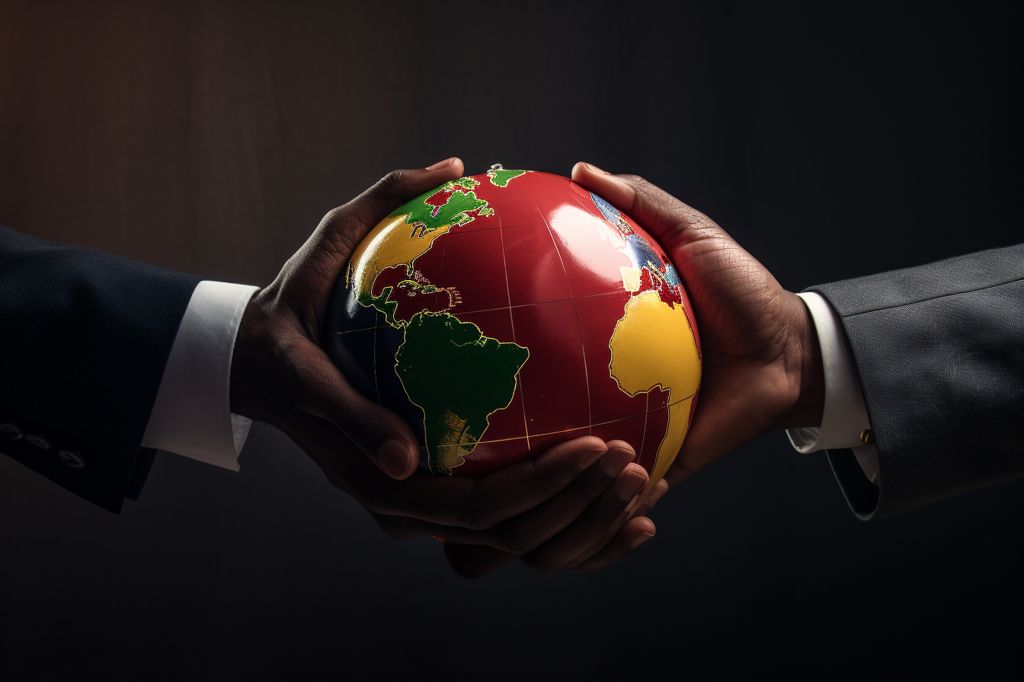The Ninth BRICS Parliamentary Forum, held in Johannesburg, South Africa, is working towards creating a fair and just global system. With its expansion to include six new members, the intergovernmental organization aims to address issues such as UN’s role in international matters, economic globalization, peace and security, and collaboration in various fields. The forum’s potential to initiate change on an unparalleled scale has been recognized, and its parliamentarians must utilize the power of legislation to create a fair world where everyone has the opportunity to prosper. The forum must be ready to manage and resolve disputes and challenges that emerge from conflicting interests, tackle the intricate challenges of development, and ensure gender equality and economic empowerment while working towards achieving the African Continental Free Trade Area.
The Ninth BRICS Parliamentary Forum, which took place in Johannesburg, South Africa, signified a major step towards establishing a fair global order. As the forum has developed since 2015, it has brought together representatives from Brazil, Russia, India, China, and South Africa. The progress of this intergovernmental organization reflects the collaborative work of its member states and the international pursuit of justice and equity.
This year, the forum expanded to include six new members: Argentina, Egypt, Ethiopia, Iran, Saudi Arabia, and the United Arab Emirates. Their participation is expected to further strengthen and revitalize the organization.
Throughout its existence, the forum has highlighted various issues that demand continuous discussion and action. These subjects encompass the United Nations’ role in international matters, the shift to a multipolar world, economic globalization, peace and security, collaboration in multiple fields, and the encouragement of growth. The ultimate objective of these conversations is to create a fair world where everyone has the opportunity to prosper.
Historical Roots and Global Influence
The spirit of collaboration among the member states is grounded in history, as the African continent has long been working towards economic and political autonomy. This pursuit eventually culminated in the formation of the Non-Aligned Movement (NAM) in 1961, which sought to foster political and economic cooperation among developing nations. Today, BRICS builds upon the NAM’s goals by collaborating to address global challenges and effect meaningful change.
BRICS countries have a significant impact on the global stage. Together, they account for over 25% of the world’s population and possess considerable economic power. The forum’s potential to initiate change on an unparalleled scale has been recognized and met with both praise and skepticism.
To make a genuine difference, the forum’s parliamentarians must utilize the power of legislation. By implementing progressive laws and repealing obsolete or unfair ones, they have the potential to transform the lives of billions of people. This requires an efficient, public-spirited, and ethical administration that can effectively enforce legislative changes.
Conflict Resolution and Development Challenges
The forum must be ready to manage and resolve disputes and challenges that emerge from conflicting interests, both within and outside the organization. Fortunately, the collective insight of its members has thus far enabled the forum to overcome such issues and remain committed to its strategic goals.
Tackling the intricate challenges of development is another vital aspect of the forum’s work. As former Tanzanian President Julius Nyerere said, development includes political and economic systems, social issues, education, health, human dignity, and security, among other factors. The forum must take all these elements into account when allocating resources and making decisions.
The recent creation of the New Development Bank and the BRICS Contingent Reserve Arrangement has further reinforced the dedication of its member states to addressing development issues. However, more work lies ahead, especially in overcoming the varying levels of capacity for project planning and development.
One potential solution involves conducting a skills audit across member states to identify necessary skills and collaborate with higher learning institutions to address these gaps. This cooperative approach would ensure that all member states can benefit from the expertise and experience of their partners.
Gender Equality, Economic Empowerment, and the African Continental Free Trade Area
The forum has also successfully organized the BRICS-Africa Women’s Business Alliance Trade Conference, illustrating its commitment to gender equality and economic empowerment. This is merely one example of the many initiatives undertaken by the forum in its pursuit of a fair global order.
As Africa works towards implementing the African Continental Free Trade Area (AfCFTA), it anticipates collaborating with its BRICS partners to achieve this ambitious project. The AfCFTA aims to establish the world’s largest single-free trade zone, covering 1.3 billion people and a gross domestic product of $3.4 trillion. This collaboration would result in a mutually beneficial situation for all parties involved, further solidifying the strength of the BRICS-Africa partnership.
As the Ninth BRICS Parliamentary Forum concluded, the journey towards a fair global system continues. The combined efforts of the member states and their partners will undoubtedly contribute to a future where fairness, justice, and prosperity are attainable for all.
1. What is the Ninth BRICS Parliamentary Forum?
The Ninth BRICS Parliamentary Forum is an intergovernmental organization comprised of representatives from Brazil, Russia, India, China, and South Africa, and six new members: Argentina, Egypt, Ethiopia, Iran, Saudi Arabia, and the United Arab Emirates.
2. What is the forum striving for?
The forum is working towards creating a fair and just global system by addressing issues such as UN’s role in international matters, economic globalization, peace and security, and collaboration in various fields.
3. What is the historical root of collaboration among the member states?
The spirit of collaboration among the member states is grounded in history, as the African continent has long been working towards economic and political autonomy, which eventually culminated in the formation of the Non-Aligned Movement (NAM) in 1961.
4. Why is the forum important on the global stage?
BRICS countries have a significant impact on the global stage. Together, they account for over 25% of the world’s population and possess considerable economic power. The forum’s potential to initiate change on an unparalleled scale has been recognized and met with both praise and skepticism.
5. What is the role of legislation in making a genuine difference?
To make a genuine difference, the forum’s parliamentarians must utilize the power of legislation. By implementing progressive laws and repealing obsolete or unfair ones, they have the potential to transform the lives of billions of people.
6. What are the development challenges that the forum faces?
Tackling the intricate challenges of development is a vital aspect of the forum’s work. Development includes political and economic systems, social issues, education, health, human dignity, and security, among other factors. The forum must take all these elements into account when allocating resources and making decisions.
7. What is the African Continental Free Trade Area (AfCFTA)?
The AfCFTA is an initiative that aims to establish the world’s largest single-free trade zone, covering 1.3 billion people and a gross domestic product of $3.4 trillion.
8. How is the forum contributing to gender equality and economic empowerment?
The forum has successfully organized the BRICS-Africa Women’s Business Alliance Trade Conference, illustrating its commitment to gender equality and economic empowerment. This is merely one example of the many initiatives undertaken by the forum in its pursuit of a fair global order.








